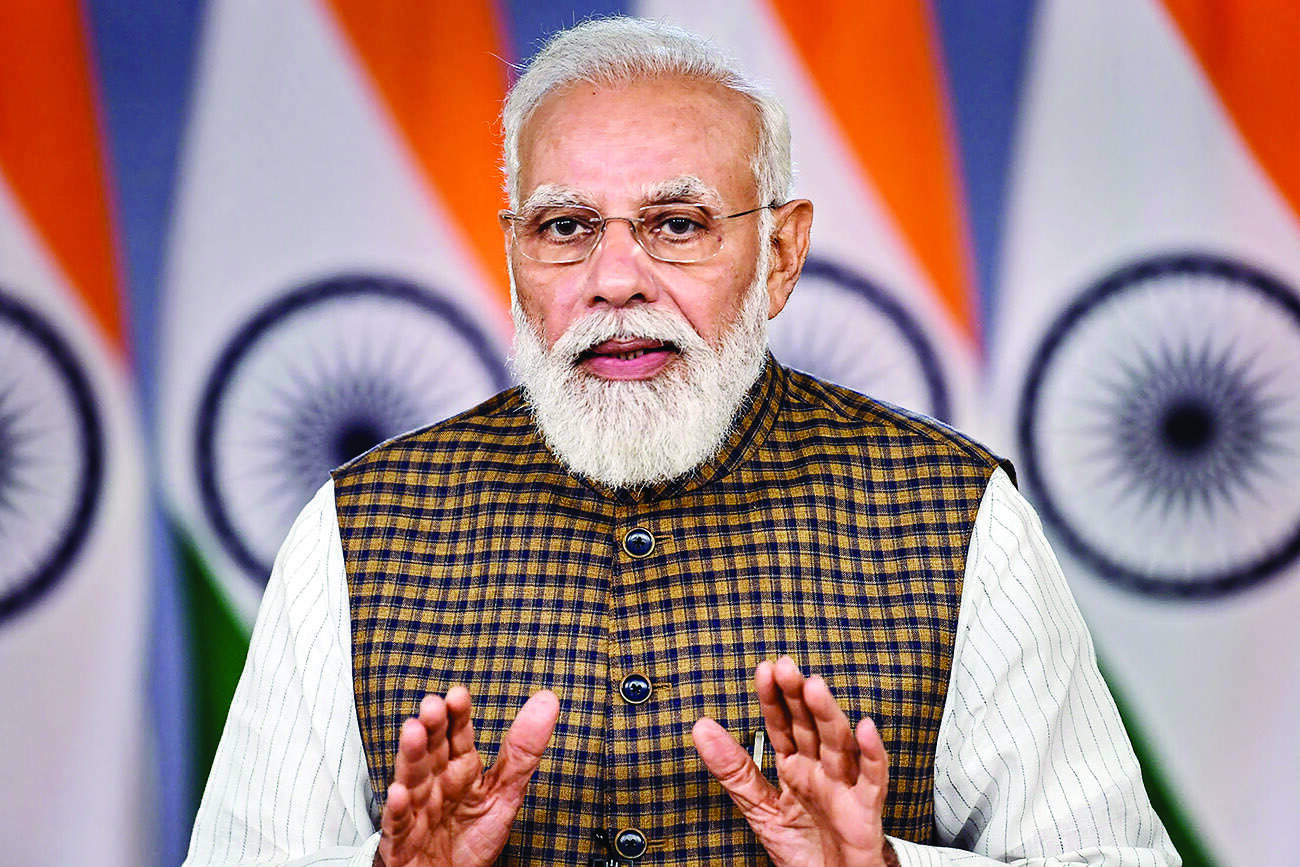PM Modi exhorts industry to reduce dependence on imports

New Delhi: Prime Minister Narendra Modi on Thursday said Make in India is the need of the hour and appealed to the industry to reduce dependence on imports and boost domestic manufacturing.
He urged the industry to take challenges and make efforts to cut imports of goods that can be manufactured in India.
"Today, the world is looking at India as a manufacturing powerhouse," Modi said while addressing DPIIT's webinar on 'Make in India for the World'.
The Prime Minister added that the industry will have to maintain global standards and compete globally and it is not acceptable that a country like India ends up merely as a market.
He said that the Budget has many significant provisions for Aatmanirbhar Bharat and Make in India. He pointed towards supply chain disruptions during the pandemic and other uncertainties to underline the critical importance of Make in India.
Positive factors like demographic dividend of young and talented population, democratic setup, and natural resources "encourage us to move towards Make in India with determination", he said. The Prime Minister asked the captains of the manufacturing sector to pick up some areas and work to remove foreign dependence on them.
Referring to his call for 'zero defect-zero effect' manufacturing, Modi said Indian products should not have any defect at all and in this competitive world, quality is the key.
"Aatmanirbharta is all the more important if we see from the prism of national security," he said, adding that manufacturing accounts for 15 per cent of India's GDP, but there are infinite possibilities for Make in India and "we should work with full strength to create a robust manufacturing base in India".
The Prime Minister also cited the examples of new demands and opportunities in sectors like semiconductors and electric vehicles where manufacturers should move with a sense of removing dependencies on foreign sources.
Similarly, areas like steel and medical equipment need to be focussed for indigenous manufacturing, he added.
He also pointed out the difference between the availability of a product and the availability of made-in-India products in the market.
Modi expressed his dismay that many foreign products are supplied for India's various festivals, which can be easily provided by local manufacturers.
The ambit of 'vocal for local' goes well beyond buying 'diyas' on Diwali and the private sector should push the factors of 'vocal for local' and Aatmanirbhar Bharat in their marketing and branding efforts, the Prime Minister said.
Take pride in the products your company makes and instil this sense of pride in your Indian customers as well. For this, some common branding can also be considered," he stated. Modi also highlighted the need to find new destinations for the local products while exhorting the private sector to enhance spending on R&D and diversify and upgrade their product portfolio.
The demand for millets is increasing in the world. By studying the world markets, we should prepare our mills in advance for maximum production and packaging, he said, adding that new possibilities are there due to the opening up of areas like mining, coal and defence sectors and the industry should prepare a new strategy.
Further, he said that reforms in the Special Economic Zone Act will provide a boost for exports. Talking about reducing compliances, he said Common Spice Form and National Single Window System are examples where the industry is feeling the government's development-friendly approach at every step.
The Make in India campaign is the need of 21st century India, and it gives an opportunity to show our potential, Modi said, adding that "we should work with full force to build a robust manufacturing base".
India has to become self-reliant in the semiconductor segment as there is no choice and this sector has brought huge opportunities for Make in India and it is the need also for the country's security, he noted.
Citing an example of iron ore, he said that the country would not gain anything from exporting raw materials.
"Manufacturers should see that the dependence of the country on the outside is minimised," he said.



